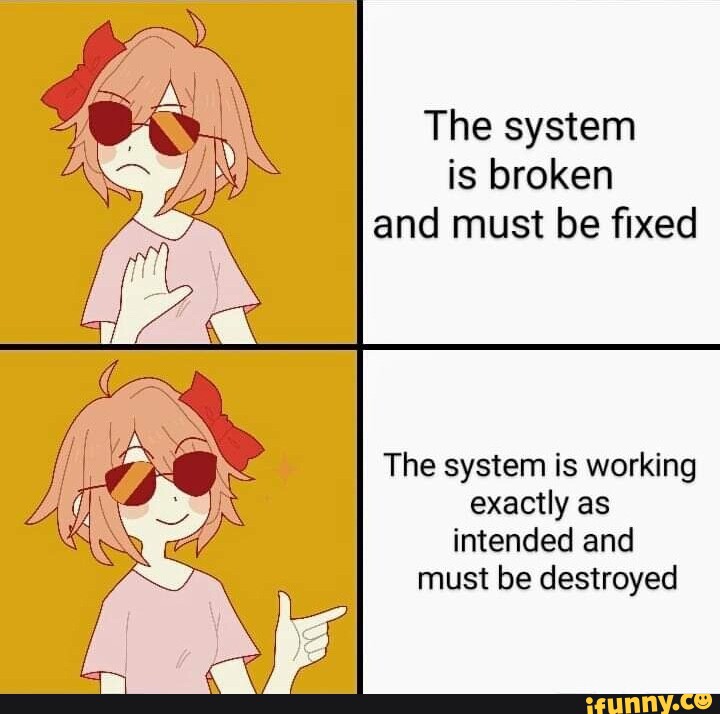- 1 Post
- 1.27K Comments
Yeah, that’s all BS but have you tried smiling a little? Would look good on you!
Be the ghost you want to see in the world
Iirc the movie is inspired by the book but I haven’t seen it yet and honestly barely read the book
Unicorns that “lost” their horns identity as “horses” but that doesn’t make them less of a unicorn. If you are auab (assigned unicorn at birth), nothing in the world will ever turn you into a horsey. That’s basic biology.
This is a psy op from the government because it’s so obviously wrong that it makes bird truthers look like idiots too, which we are not. If it flies, it spies. “If it gallops, it spies” neither rhymes nor does it make sense. See how fake it is!
Capitalist Realism. There is no alternative.
They can kill the penguin but they can’t kill the idea
The meme assumes this was somehow not be design.
Does it though? I’ll give you this much: it allows both readings:

Don’t blame the founding fathers that all these hippies moved to California /s
Disagreeing with the intention of some 1700s guys is extremely low IQ?
And can sell that receipt to someone else who needs a receipt. It’s not a pyramid scheme
That’s how elections work: one wins, everyone else loses












As someone who remembers the time before spotify: people were pirating alot so legal streaming was the way to end this but giving a usable alternative